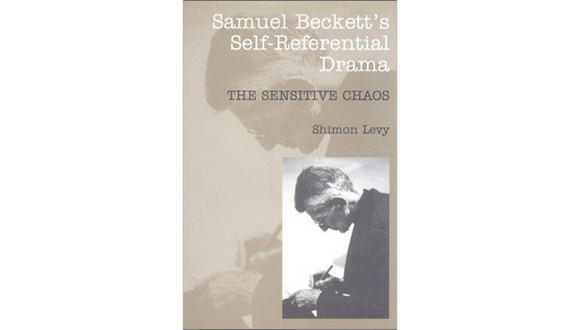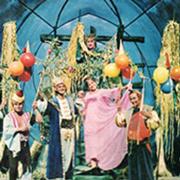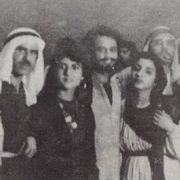Samuel Beckett's Self-Referential Drama: The Sensitive Chaos
Shimon Levy
Brighton, UK: Sussex Academic Press, 2002
Shimon Levy
Brighton, UK: Sussex Academic Press, 2002
Shimon Levy is among the few theatrical directors who can negotiate the fields of theater and theory, the text based study of drama and theory, and the "dynamic, live, and unique event ... an immediate, irreversible and surprising encounter" that is performance, with equal facility.
The fields normally repel each other like magnets aligned positive to positive, negative to negative, but Levy is at home with both as he understands that theory and theater share a common etymological root, the Greek "thea," a viewing.
As a critic he theorizes theater; as a theater director he thinks through theory.
This current collection of essays is divided as a single field as he explores the possibilities of chaos theory as a model for the theatrical experience, where "even the tiniest detail may effluence the ... presentation," and moves on to explore the implications of Logical Positivism and Existentianalism, all under the umbrella of the Cartesian Cogito.
The essay on "The Poetics of Offstage" is exemplary and should be required reading for theater directors.
What makes the volume unique, finally, is the "Epilogue," a personal report of Levy's stagings of Not I over a 25-year period with six different actresses.
Although most of the essays have appeared before in scholarly journals and have been presented at international conferences, the overall impact of Samuel Beckett's Self-Referential Drama: The Sensitive Chaos is greater than the sum of its parts.
S.E. Gontarski
Sarah Herndon Professor of English, Florida State University
Editor, Journal of Beckett Studies
Shimon Levy is Chairman of the Department of Theatre Arts at Tel Aviv University, and the author of The Bible as Theatre ("He brings what must be a truly unique combination of total mastery of stagecraft and the vocabulary of dramatic criticism," Martin Esslin), published by Sussex Academic Press (2000).





